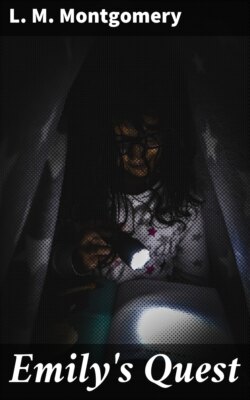Читать книгу Emily's Quest - L. M. Montgomery - Страница 26
На сайте Литреса книга снята с продажи.
II
ОглавлениеTable of Contents
Then there was the episode of the local theatricals in Shrewsbury which were written up with vitriolic abuse in one of the Charlottetown papers. Shrewsbury people blamed Emily Byrd Starr for doing it. Who else, they demanded, could or would have written with such diabolical cleverness and sarcasm? Everyone knew that Emily Byrd Starr had never forgiven Shrewsbury people for believing those yarns about her in the old John House affair. This was her method of revenge. Wasn’t that like the Murrays? Carrying a secret grudge for years, until a suitable chance for revenge presented itself. Emily protested her innocence in vain. It was never discovered who had written the report and as long as she lived it kept coming up against her.
But in one way it worked out to her advantage. She was invited to all the social doings in Shrewsbury after that. People were afraid to leave her out lest she “write them up.” She could not get to everything—Shrewsbury was seven miles from Blair Water. But she got to Mrs. Tom Nickle’s dinner dance and thought for six weeks that it had changed the current of her whole existence.
Emily-in-the-glass looked very well that night. She had got the dress she had longed for for years—spent the whole price of a story on it, to her aunt’s horror. Shot silk—blue in one light, silver in another, with mists of lace. She remembered that Teddy had said that when she got that dress he would paint her as an Ice-maiden in it.
Her righthand neighbour was a man who kept making “funny speeches” all through the meal and kept her wondering for what good purpose God had ever fashioned him.
But her lefthand neighbour! He talked little but he looked! Emily decided that she liked a man whose eyes said more than his lips. But he told her she looked like “the moonbeam of a blue summer night” in that gown. I think it was that phrase that finished Emily—shot her clean through the heart—like the unfortunate little duck of the nursery rhyme. Emily was helpless before the charm of a well-turned phrase. Before the evening was over Emily, for the first time in her life, had fallen wildly and romantically into the wildest and most romantic kind of love—“the love the poets dreamed of,” as she wrote in her diary. The young man—I believe his beautiful and romantic name was Aylmer Vincent—was quite as madly in love as she. He literally haunted New Moon. He wooed beautifully. His way of saying “dear lady” charmed her. When he told her that “a beautiful hand was one of the chief charms of a beautiful woman” and looked adoringly at hers Emily kissed her hands when she went to her room that night because his eyes had caressed them. When he called her raptly “a creature of mist and flame” she misted and flamed about dim old New Moon until Aunt Elizabeth unthinkingly quenched her by asking her to fry up a batch of doughnuts for Cousin Jimmy. When he told her she was like an opal—milk-white outside but with a heart of fire and crimson, she wondered if life would always be like this.
“And to think I once imagined I cared for Teddy Kent,” she thought in amazement at herself.
She neglected her writing and asked Aunt Elizabeth if she could have the old blue box in the attic for a hope chest. Aunt Elizabeth graciously acceded. The record of the new suitor had been investigated and found impeccable. Good family—good social position—good business. All the omens were auspicious.
